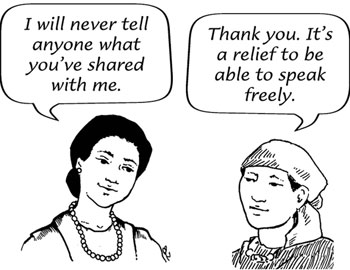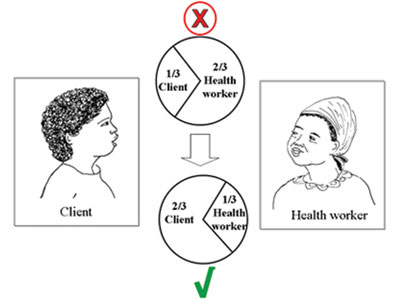
Counselling the pregnant woman is a process of two-way interpersonal communication in which you help her to know about possible problems that she may encounter during pregnancy, and make her own decisions about how to respond. When you create a two-way discussion with good understanding of each other, it not only helps the woman to know the possible problems that she may encounter and when to take appropriate action, but it also establishes a trusting relationship with you. Additionally, such two-way communication helps the woman to feel more comfortable and freely express her worries and needs to you.
Remember that the pregnant woman is also an expert on her own needs and situation. She has learnt informally many things about pregnancy (sometimes right and sometimes wrong). Therefore, never discourage her from expressing her beliefs and thoughts to you from the outset — you should develop tolerance for every woman's values and beliefs, while you gently and sensitively try to dispel any important misconceptions she may have. Respect and tolerance for wrong beliefs doesn't mean accepting that they cannot be changed. Sensitivity and tolerance are two of the most important qualities of an effective counsellor.
The box below summarises the skills and attitudes you need in order to develop good communication with any client, including pregnant women. The counselling process goes through the following stages: opening building relationships with pregnant women, exploring their issues, facilitating exchange of information (two-way) and closing the counselling process with gratification and the next appointment.

